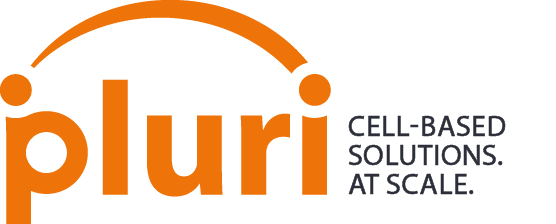Encouraging results from Pluri’s recent Phase 1 clinical trial not only give patients with bone marrow failure hope for a better recovery, but also reinforce the innovative cell therapy product candidate PLX-R18 as a potential treatment for radiation exposure.
The product candidate was tested in patients with incomplete hematopoietic recovery following hematopoietic cell transplantation (HCT), which may result in life-threatening failure of the bone marrow. Similarly, exposure to radiation can also result in bone marrow failure. This would mean that in the case of a nuclear fallout or other tragic radiation event, this therapy could be crucial for recovery.
The Dangers of Radiation
Even relatively low levels of radiation can cause immediate and irreversible damage to the human body, from altering our DNA to causing cancer. On the severe end of this spectrum is acute radiation syndrome (ARS), which causes potentially lethal damage to organs inside the human body.
One devastating manifestation of ARS is failure of the bone marrow, which leads to a reduction in its ability to produce blood cells. This may make victims of radiation exposure vulnerable to infections and bleeding.
ARS, therefore, is a life-threatening disorder.
Unfortunately, radiation exposure is a very real risk in our world today. Healthcare providers and governments are preparing for the devastating possibility of a nuclear attack or damage to existing facilities. Our therapy carries great potential significance for current events in Europe and could potentially provide treatment for people exposed to radiation.
Treating Acute Radiation Syndrome
Pluri’s research studies evaluated PLX-R18 as a medical countermeasure either before or after exposure to radiation, and gained support from multiple U.S. governmental agencies, including the National Institutes of Health (NIH) and the Department of Defense (DoD). These agencies conducted and funded the studies to PLX-R18 as a medical countermeasure to treat the hematopoietic sub-syndrome of ARS, and as a potential prophylactic countermeasure against ARS.
All our studies tested PLX-R18 via the FDA animal rule pathway, as efficacy studies are not permitted in humans for this therapy. After our promising pilot study on non-human primates, our PLX cell therapy was granted an orphan drug designation by the FDA for treating ARS.
The Orphan Drug Act provides granting special status to a drug or biological product, to treat a rare disease or condition. The benefits of achieving Orphan Drug Designation include close guidance by the FDA—which may accelerate the path to potential marketing approval—orphan drug grants, tax credits, and 7-year market exclusivity upon marketing approval.
One year later, the FDA cleared Pluri’s Investigational New Drug (IND) application for PLX-R18 for the treatment of ARS. This special application allows for the treatment of victims acutely exposed to high dose radiation due to a nuclear attack or accident.
PLX-R18 Hematology Updates
In our Phase I clinical study in patients with poor graft function following HCT, we showed positive results for the innovative therapy in the first clinical trial to study PLX-R18 in humans. Pluri CEO and President Yaky Yanay called it “a game changer.”
Current standard-of-care treatments do not lead to a satisfactory, long-term blood count stabilization, leading to recurrent infections and the need for repeated, costly blood transfusions. PLX-R18, on the other hand, is well tolerated by patients, shows a meaningful advantage as it reduces mortality from 29 to 18%, increases blood counts, and reduces the need for blood transfusions.
“We are proud of this product that might hold the key to improve quality of life, improve standard of care, save healthcare costs and possibly save lives,” Yanay said. He goes on to explain how PLX-R18 can accelerate hematopoietic recovery in sick patients, increase blood counts and reduce the need for blood transfusions.
These additional studies of PLX-R18 in both ARS and other hematological trials were conducted in collaboration with Charité Universitätsmedizin Berlin Institute of Medical Immunology, the Berlin-Brandenburg Center for Regenerative Therapies, Case Western Reserve University, Hadassah Hebrew University Medical Center, and Indiana University. All studies supported PLX-R18’s therapeutic potential to treat a variety of hematologic issues.
Pluri will continue to push the boundaries of science and engineering to create cell-based products for commercial use and improve the quality of life of people around the world.



